Aron Cheung tells you all you need to know about the chairs of the new House of Commons select committees in six charts.
Seven new select committee chairs have been elected:
- Nicky Morgan – Treasury
- Robert Halfon – Education
- Rachel Reeves – Business, Energy and Industrial Strategy (BEIS)
- Lilian Greenwood – Transport
- Andrew Murrison – Northern Ireland Affairs
- Norman Lamb – Science and Technology
- Tom Tugendhat – Foreign Affairs.
In addition, 17 incumbent chairs will remain in post, although three of these – Bernard Jenkin (Public Administration and Constitutional Affairs Committee), Clive Betts (Communities and Local Government Committee), and David Davies (Welsh Affairs) – will have to stand down next year when they reach the end of their eight-year terms.
The majority of committees are also chaired by a member of the same party as in the previous Parliament, with only the Science and Technology Committee switching from the Conservatives to the Liberal Democrats.
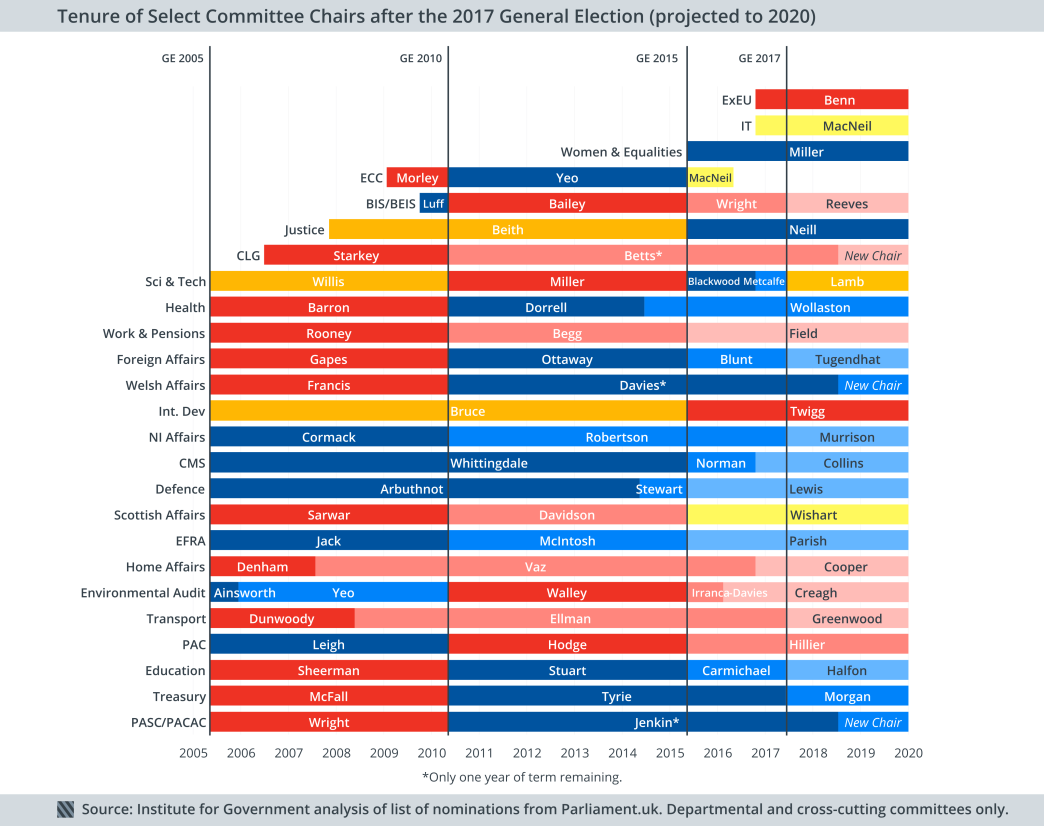
Returning chairs, meanwhile, may want to use the continuity to follow up on their committee’s work at the end of the last Parliament, when many inquiries were brought to a premature close as reports were rushed out before dissolution.
Vacant committee chairs are highly sought after.
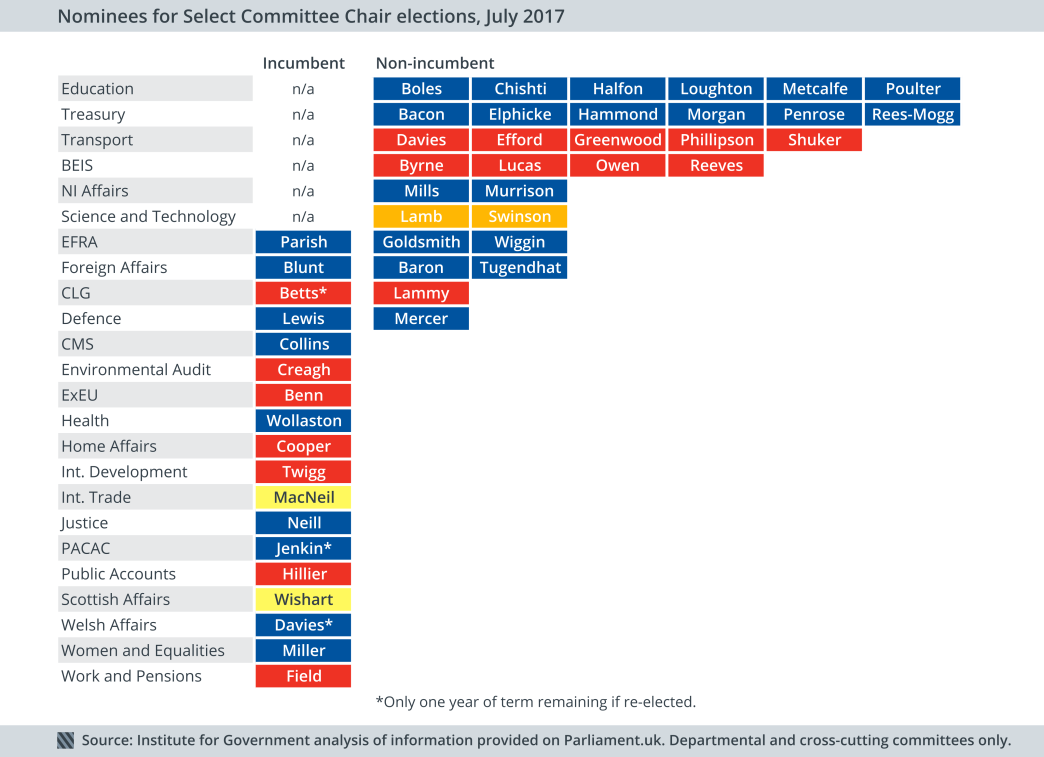
Where there was no incumbent, chair elections attracted considerably more candidates, including six each for the Treasury and Education committees.
This resulted in several hotly contested races between senior figures. The former Education Secretary Nicky Morgan and high-profile Conservative MP Jacob Rees-Mogg competed for the Treasury Committee. Former Labour Cabinet members Liam Byrne and Rachel Reeves contested the BEIS Committee, and former Liberal Democrat ministers Norman Lamb and Jo Swinson went head-to-head for the Science and Technology Committee.
Four incumbents faced a challenge to retain their positions, with three successfully defending their positions, and fourteen incumbents were elected unopposed.
Committee chair elections attract big names.
A feature of recent chair elections has been the number of high-profile figures putting their names forward – and winning. Of the newly elected or re-elected chairs, four are former secretaries of state, eight former ministers of state, and eight former shadow secretaries of state.
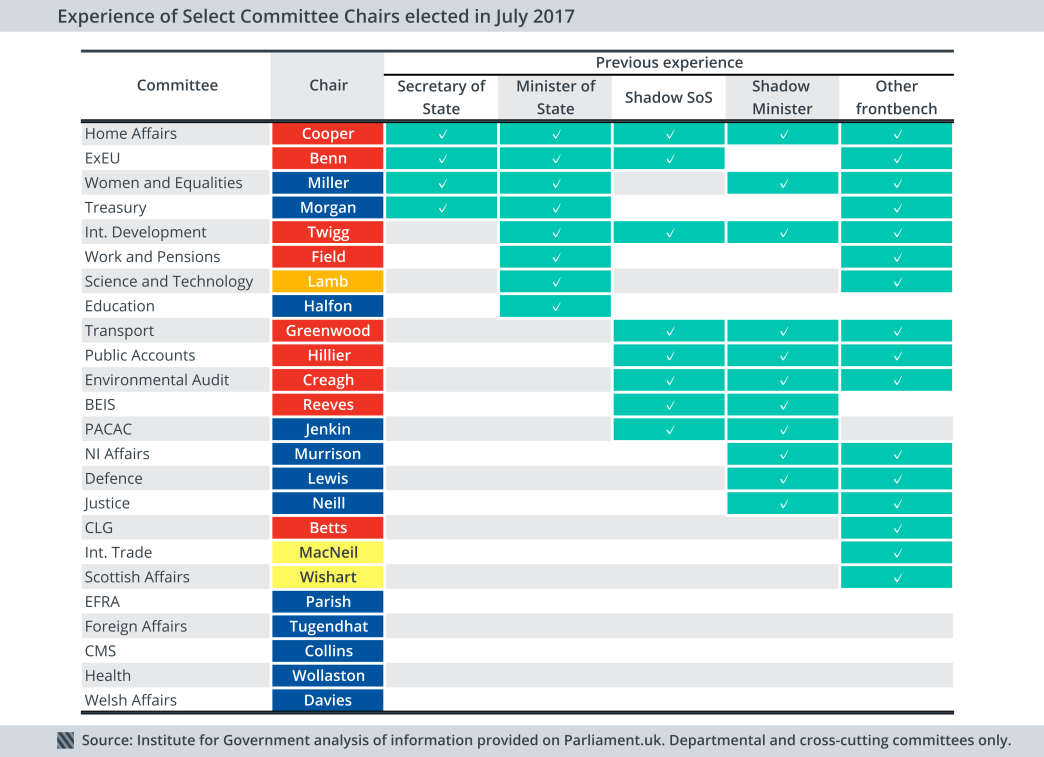
The competition for chair positions is a sign that select committees are growing in influence and stature.
Committee chairs have become more independent and experienced since 2010 when they became elected positions as opposed to being effectively selected by party whips. As a result, “the readiness of the committees to produce reports that cause problems for government" has increased.
In a hung parliament, committees are expected to play an even larger role in holding the Government to account.
There’s still a long way to go on gender balance, but things are improving.
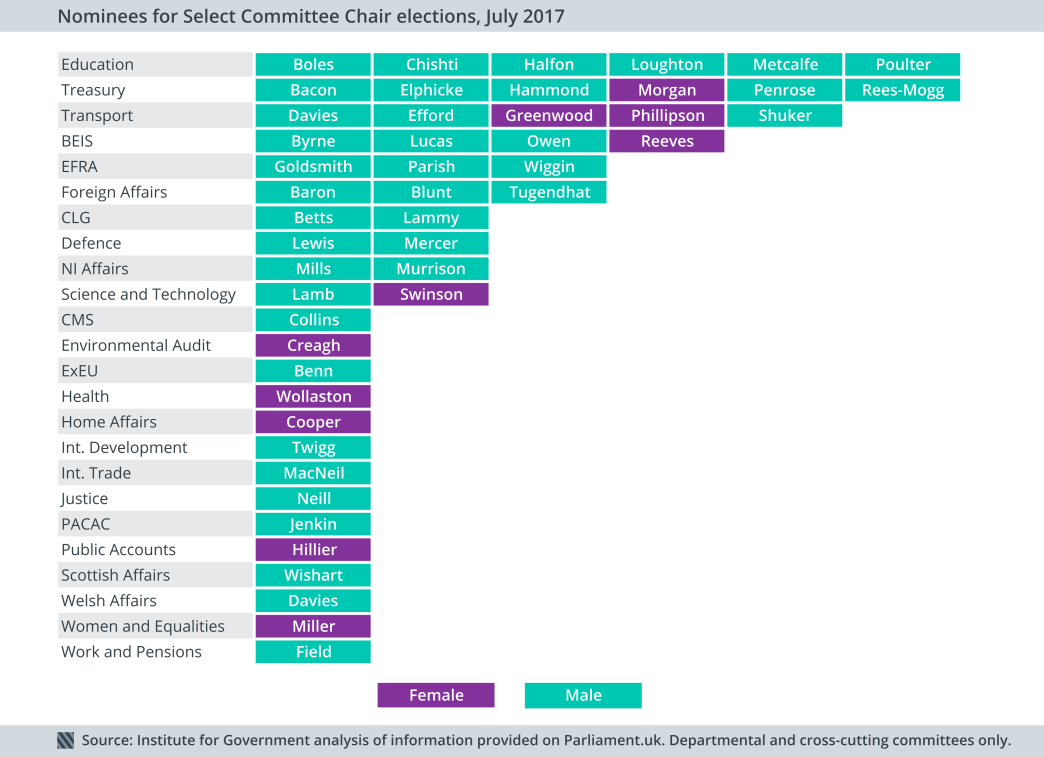
Out of the 49 candidates for select committee chairs, only 10 were female – six Labour, three Conservative and one Liberal Democrat.
This prompted Labour MP Jess Phillips to call for a review to increase the number of female committee chairs, arguing that the percentage of female candidates is disproportionately low compared to the percentage of female MPs.
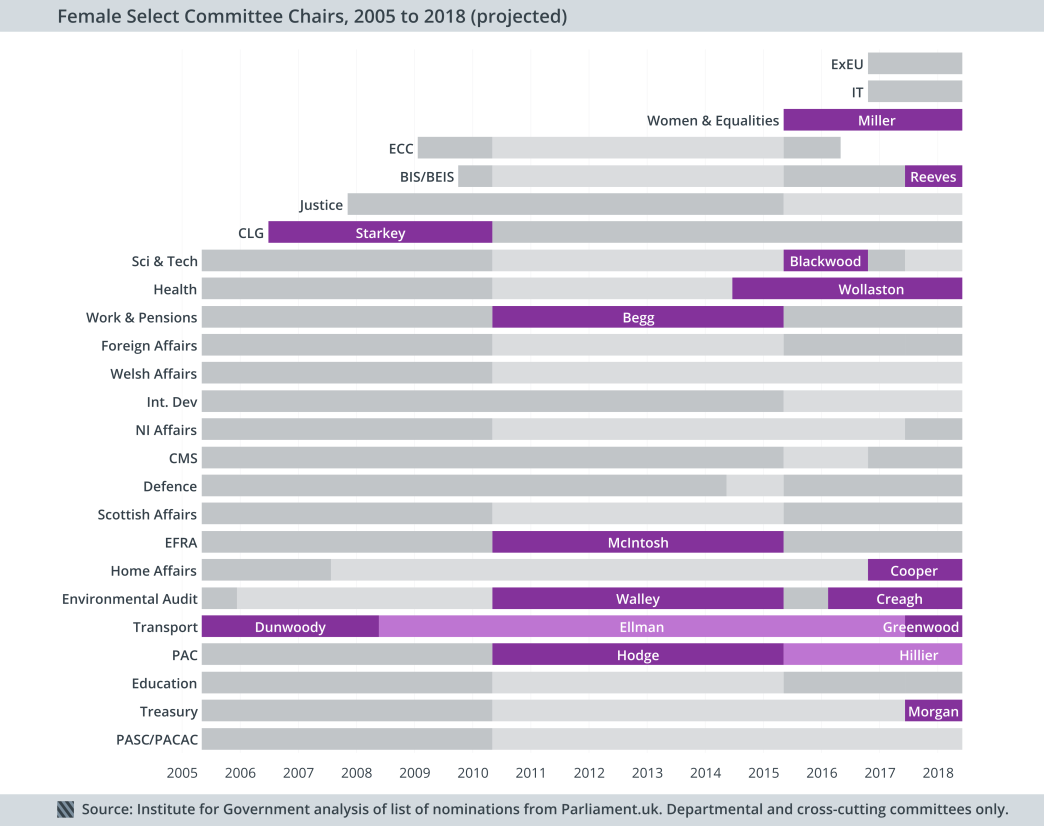
The results of the elections are more encouraging, with eight female chairs being elected, up from six before Parliament was dissolved. This means that a third of committees will now be chaired by women, mirroring the 32% of MPs that are women.
The new committees will play a key role in holding the Government to account on Brexit.
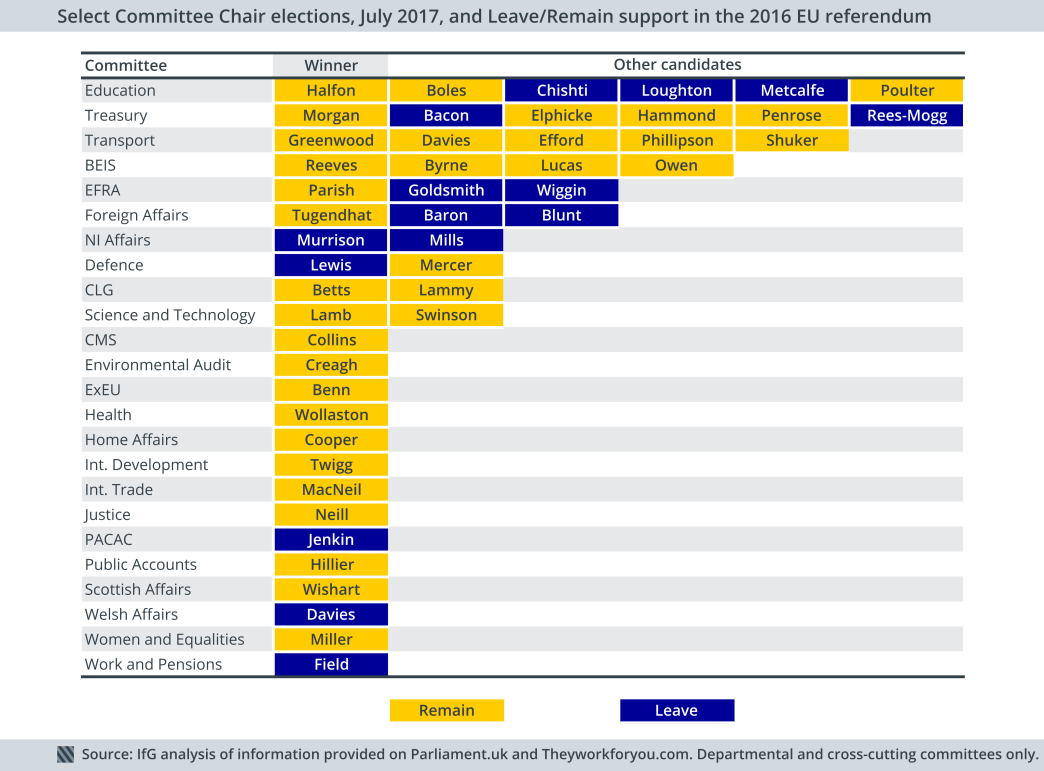
The focus of the Government during this parliament will be Brexit. Naturally, this means that much of the new committees’ scrutiny work will also focus on Brexit. The majority of committees will be chaired by MPs who supported ‘Remain’ in 2016, and five committee chairs – Bernard Jenkin (Public Administration and Constitutional Affairs Committee, PACAC), David Davies (Welsh Affairs), Andrew Murrison (Northern Ireland Affairs), Julian Lewis (Defence), and Frank Field (Work and Pensions) – supported ‘Leave’. But select committees, by their nature, are diverse in terms of the views of their members. To be effective, committee chairs must find ways of working across ideological lines, so that their reports and recommendations carry the weight of cross party consensus.
This article was updated with an additional chart on Friday 14 July to reflect the position of select committee MP's on whether to leave or remain in the 2016 Referendum.